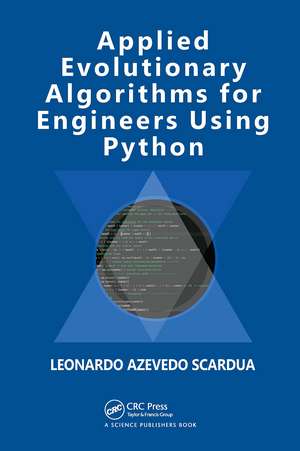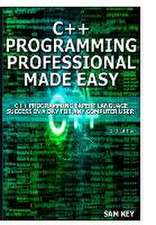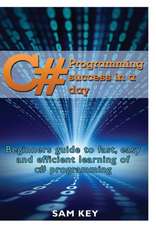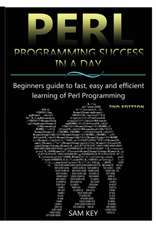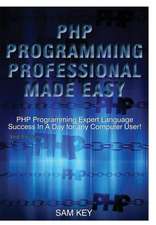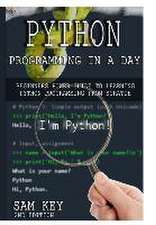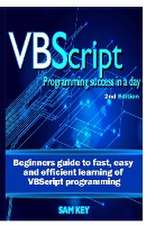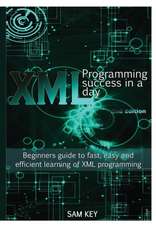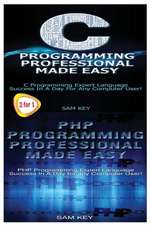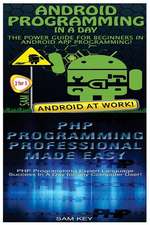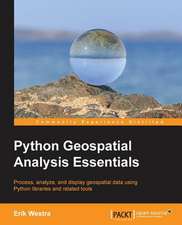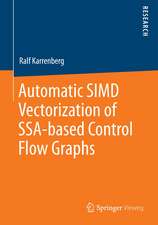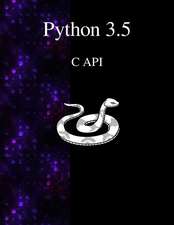Applied Evolutionary Algorithms for Engineers Using Python
Autor Leonardo Azevedo Scarduaen Limba Engleză Hardback – 15 iun 2021
Instead of attempting to encompass most of the existing evolutionary algorithms, past and present, the book focuses on those algorithms that researchers have recently applied to difficult optimization problems, such as control problems with continuous action spaces and the training of high-dimensional convolutional neural-networks. The basic characteristics of real-world optimization problems are presented, together with recommendations on its proper application to evolutionary algorithms. The applied nature of the book is reinforced by the presentation of successful cases of the application of evolutionary algorithms to optimization problems. This is complemented by Python source codes, giving users an insight into the idiosyncrasies of the practical application of evolutionary algorithms.
| Toate formatele și edițiile | Preț | Express |
|---|---|---|
| Paperback (1) | 383.02 lei 3-5 săpt. | +19.59 lei 7-13 zile |
| CRC Press – 26 iun 2023 | 383.02 lei 3-5 săpt. | +19.59 lei 7-13 zile |
| Hardback (1) | 1161.96 lei 6-8 săpt. | |
| CRC Press – 15 iun 2021 | 1161.96 lei 6-8 săpt. |
Preț: 1161.96 lei
Preț vechi: 1452.45 lei
-20% Nou
Puncte Express: 1743
Preț estimativ în valută:
222.34€ • 232.62$ • 184.70£
222.34€ • 232.62$ • 184.70£
Carte tipărită la comandă
Livrare economică 02-16 aprilie
Preluare comenzi: 021 569.72.76
Specificații
ISBN-13: 9780367263133
ISBN-10: 0367263130
Pagini: 254
Ilustrații: 1 Illustrations, color; 75 Illustrations, black and white
Dimensiuni: 156 x 234 x 16 mm
Greutate: 0.53 kg
Ediția:1
Editura: CRC Press
Colecția CRC Press
Locul publicării:Boca Raton, United States
ISBN-10: 0367263130
Pagini: 254
Ilustrații: 1 Illustrations, color; 75 Illustrations, black and white
Dimensiuni: 156 x 234 x 16 mm
Greutate: 0.53 kg
Ediția:1
Editura: CRC Press
Colecția CRC Press
Locul publicării:Boca Raton, United States
Cuprins
Preface. SECTION I: INTRODUCTION. Evolutionary Algorithms and Difficult Optimization Problems. Introduction to Optimization. Introduction to Evolutionary Algorithms. SECTION II: SINGLE-OBJECTIVE EVOLUTIONARY ALGORITHMS. Swarm Optimization. Evolution Strategies. Genetic Algorithms. Differential Evolution. SECTION III: MULTI-OBJECTIVE EVOLUTIONARY ALGORITHMS. Non-Dominated Sorted Genetic Algorithm II. Multiobjective Evolutionary Algorithm Based on Decomposition. SECTION IV: APPLYING EVOLUTIONARY ALGORITHMS. Solving Optimization Problems with Evolutionary Algorithms. Assessing the Performance of Evolutionary Algorithms. Case Study - Optimal Design of a Gear Train System. Case Study - Teaching a Legged Robot How to Walk. References.
Notă biografică
Leonardo Azevedo Scardua received the D.Sc. degree in electrical engineering from the University of São Paulo, Brazil, in 2015. He has extensive engineering experience with mission-critical applications in the railway industry, having applied artificial intelligence and optimization algorithms in the development of software systems that control train traffic in many railways. He is now with the Control Engineering Department at the Federal Institute of Technology of Espírito Santo, Brazil.
Descriere
This book meant for students, scientists and engineers to help in the application of evolutionary algorithms to practical optimization problems. The presentation of theoretical background is complemented with didactical Python implementations of evolutionary algorithms that researchers have recently applied to complex optimization problems.
